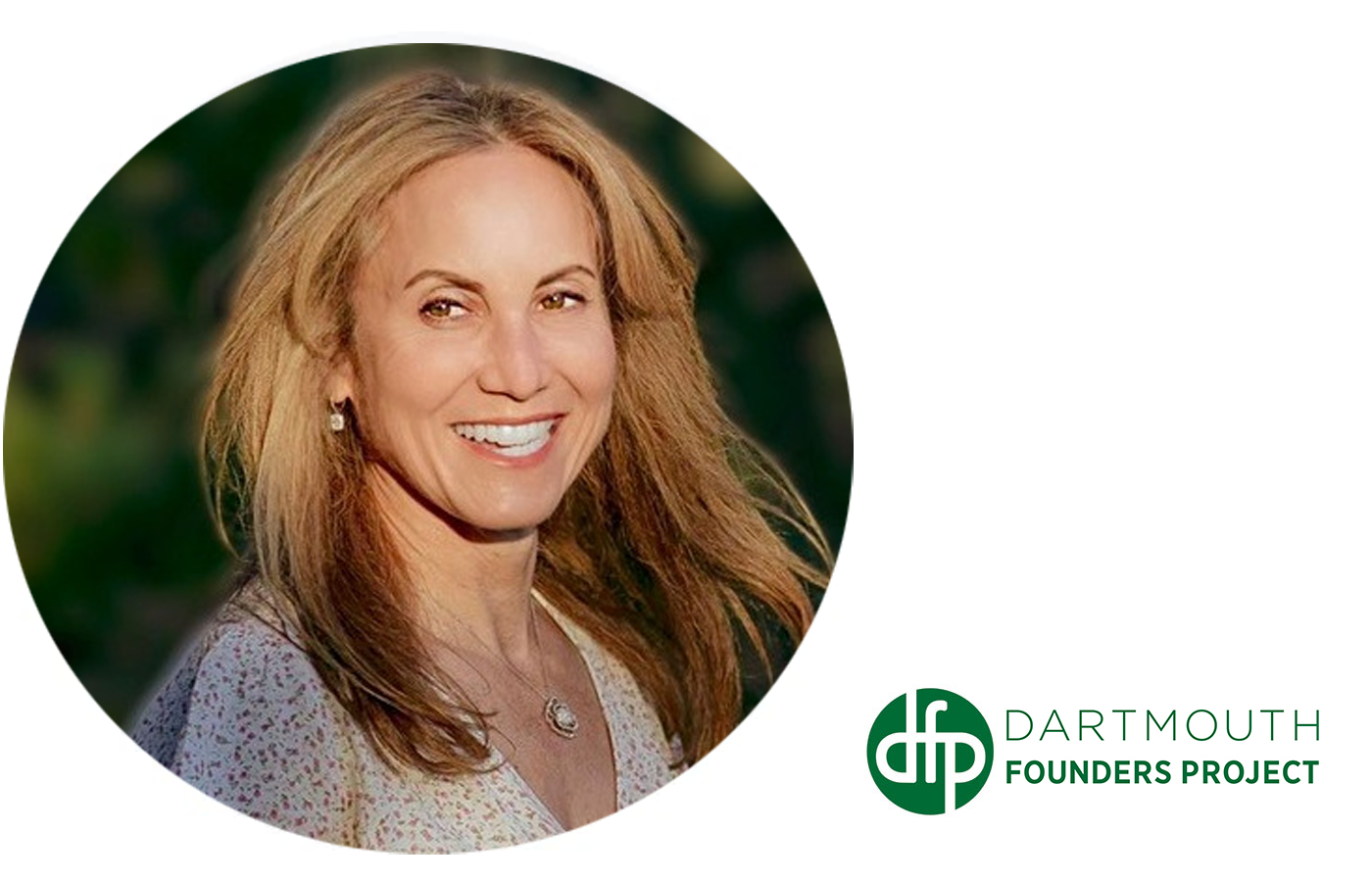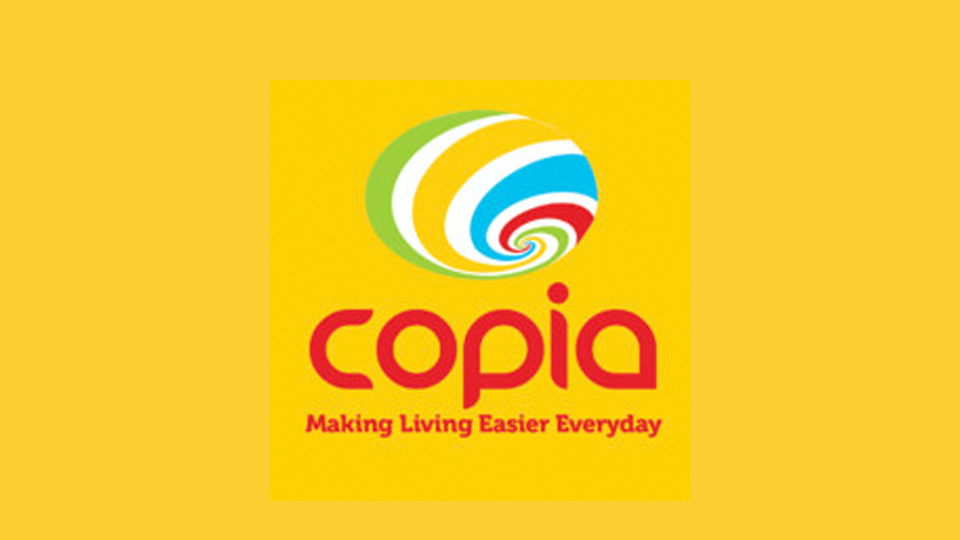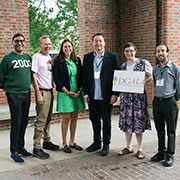Meet Tracey Pettengill Turner ’93, Founder & Chair of Copia

Jun 21, 2024
7 minute read
7 minute read
Tracey is a serial entrepreneur and business executive who has held leadership roles in social businesses and emerging markets for more than 25 years. She is particularly passionate about using the best of capitalism, the sharpest tool in the shed, to end global poverty. Currently, Tracey serves as the Founder and Chair of Copia, which is bringing e-commerce to the mass market starting in Kenya. In 2005, she founded and served as CEO of MicroPlace, a web-based brokerage service for everyday people to make social investments around the world. MicroPlace was acquired by eBay.

Prior to this, Tracey was part of the founding team and served as CFO of KickStart International, an organization that designs and sells products to low-income people in Africa. In 1998, she started her first company, 4charity, a for-profit technology company serving NGOs, where she served as Founder and CEO.
Tracey is a regular speaker at conferences and in the media. Her numerous leadership awards include the Top 25 Women of the Web Award, the San Francisco Business Times Leadership Award, and a Working Woman Magazine Entrepreneurship Award. In her free time, Tracey is the personal taxi driver for her three children, worships at the altar of Steinbeck, serves as the personal chew toy for Lily the Pupinator, cheers for Tottenham, and squeezes in an Ironman or marathon whenever she can. Tracey holds a degree in engineering and economics from Dartmouth College and an MBA from Stanford Business School.
Tell us about Copia. How did you develop the idea and what originally led you into the e-commerce space? Who do you serve and what problems do you solve for your clients? What are you most proud of in your work?
There are approximately 800 million middle- and low-income Africans whom the global economy has largely neglected. Yet the informal economy in Africa thrives as a beehive of microeconomic capitalistic activity.
Families are families everywhere, needing to make everyday purchases of food and household goods. The wave of mobile technologies has created a unique opportunity to reinvent this vibrant market into empowered global consumers. Copia has always been a tech company, but when we started in 2013 our consumers were still largely using feature phones and ordering through a local Copia agent. Now, in 2024, as a new wave of smartphones reaches their shores, middle- and low-income African consumers can order directly through Copia’s app. I’m most proud of the opportunity to showcase to the world that this demographic is not just a viable consumer market but a huge and lucrative one as well, worthy of time, attention, and resources.
Your career has followed a fascinating path geographically! You are a member of the growing group of DFP members with an international footprint. Tell us about your journey from Silicon Valley, to Africa, and now London.
It started at Dartmouth when I participated in the FSP to Kenya under Professor Jack Shepherd in 1992. The experience was transformational for me as it was not only my first time outside the United States, but also the first time I experienced the vitality, work ethic and capitalistic energy of Kenyan culture. And that was a long time ago! Then the GDP of Kenya was $8 billion, while today it is more than $400 billion. I moved to Silicon Valley in 1996 for the social entrepreneurship program at the Stanford Graduate School of Business, where I received my MBA. After a brief stint at the Grameen Bank in Bangladesh, I stayed in the Bay Area for many years to soak up its entrepreneurial energy. It was the perfect place to launch companies like Copia because of that unique mindset that social challenges can be addressed with for-profit solutions.
Have you experienced cultural or societal challenges while building your ventures? If so, please share what strategies you’ve employed to navigate these successfully. Across all your start-ups, has there been a common challenge?
For most of my career, impact investing was a fringe idea and most social good was accomplished through philanthropic giving. The concept of social capitalism has become more mainstream lately but is still only a tiny slice of most investment portfolios. To be clear, there is a place for philanthropic dollars (for example, I highly recommend the Dartmouth Engineering scholarship fund!). But if a social problem can be solved with a profitable model that provides not only your money back but also a return on your investment, an infinite amount of good can be achieved.
How have your businesses been drivers of economic empowerment and/or change in the communities you serve?
Copia is a good example, employing nearly a thousand people including fulfillment center employees, sales and customer service teams, and delivery truck drivers. But the real driver of economic empowerment is the more than 30,000 small shopkeepers across Kenya who serve as Copia agents. They get paid a commission on all e- commerce orders which in many cases more than doubles their incomes, which can be the difference between poverty and the middle class.
What aspect of your Dartmouth experience do you rely on most as an entrepreneur and leader?
I was about to say my group projects at the engineering school, but in truth it was actually my position as chief editor of the Aegis, the college yearbook, which was my first experience running a business. It must be much easier now that everything is done digitally, but back then, we had a darkroom, photos, scissors, tape, and original copy everywhere! It was also about book sales, budget management, vendor management, customer service, and motivating volunteer staff, etc.
What advice do you have for students about using their time, relationships, and opportunities at Dartmouth to prepare for a career as an entrepreneur?
Ha, ha, I don’t recommend being the editor-in-chief of the yearbook unless it can be achieved in less time these days! Rather, I would take advantage of the uniqueness of the liberal arts foundation of the school: use your limited time to explore the world on all those terrific foreign study programs, do some primary research on subjects that fascinate you, take courses in subjects you know nothing about, and explore questions that have no (yet known) answers. In the words of the great Ted Lasso, “be curious, not judgmental.”
As a member of the Dartmouth Founders Project, you have signaled your intent to support the College philanthropically. Why is giving back important to you? What area/s have you been inspired to support and why?
So far I’ve endowed a scholarship fund for the engineering school intended to support students from emerging markets. I’m particularly interested in enabling stellar African students to attend Dartmouth, which enriches not only them and their home countries, but equally importantly the entire Dartmouth community. I’ve also joined the Centennial Circle, a remarkable platform for Dartmouth alumnae philanthropic giving.
What is your favorite Dartmouth memory or most transformative Dartmouth experience?
Who wouldn’t say the glorious days of sophomore summer? Strawberry picking for daiquiri night? But, of course, the Kenya FSP not only set me on a unique entrepreneurial career path but also enriched my life with Dartmouth friendships that have lasted a lifetime. The leader of the trip, Professor Shepherd, has recently passed, but he left an indelible mark on me and all my entrepreneurial work. I think of him and the entire FSP group so often while bouncing along a Kenyan dirt road in the back of a lorrie.






